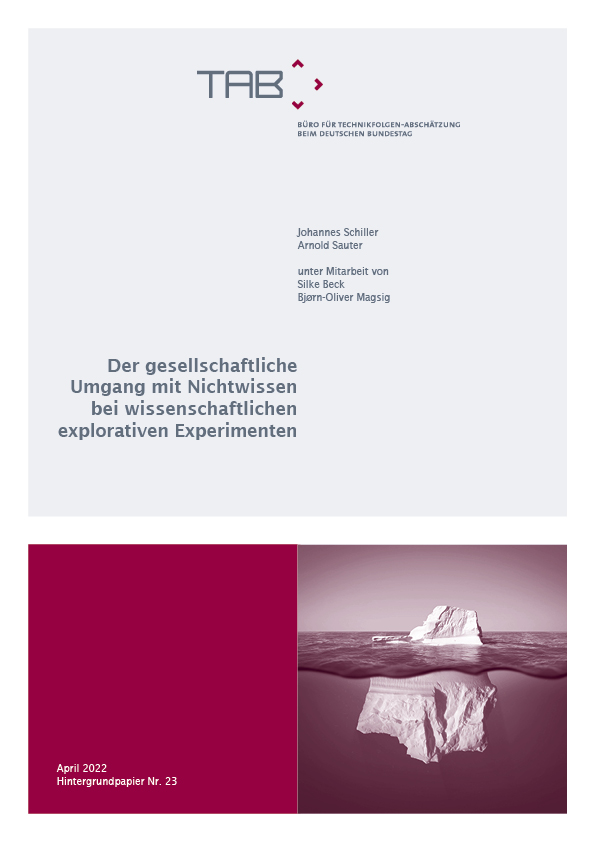Dealing with ignorance as a societal challenge
Scientific experimentation in the development of new technologies is often not confined to laboratories with controlled conditions, but takes place as real-world experiments in the environment or in society. Such exploratory experiments are carried out both in the course of initial developments and in the context of subsequent applications of technologies.
Uncertain knowledge, or ignorance or non-knowledge, which is the cause, driving force and inherent component of all scientific research, becomes even more important in the transition from the research laboratory to the real world, where negative effects are much more difficult to control. This raises the question of how society should deal with the inevitable ignorance and uncertainty about the possible consequences of real-life experiments.
At the suggestion of the Committee for Education, Research and Technology Assessment, the report addresses the question of how to deal with this dilemma. The dilemma of relying on scientific experimentation to generate knowledge, fill knowledge gaps, and drive change and innovation, while at the same time being inevitably confronted with ignorance about possible undesirable consequences for nature and society.
In order to deal with this tension, two heuristics - the method of technology characterisation and the perspective of recursive learning in real-world experiments - are presented in this background paper and illustrated using the three research areas of green genetic engineering, fracking and ocean fertilisation with iron as examples. The examples show how ignorance or non-knowledge can be analysed and evaluated, and how the challenges posed by non-knowledge can be dealt with responsibly in a democratic society.
The full report is only available in German. A short overview of the contents of the report chapters and the derived aspects of good governance in exploratory experiments can be found on the project page.
23.02.2023
Download und further information
- TAB-Hintergrundpapier Nr. 23 (only in German)
Der gesellschaftliche Umgang mit Nichtwissen bei wissenschaftlichen explorativen Experimenten (PDF)
doi:10.5445/IR/1000156296 - Project page: Dealing with ignorance in exploratory experiments

